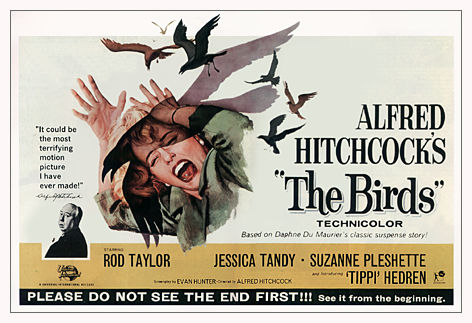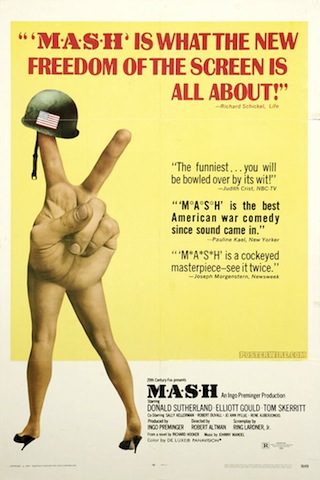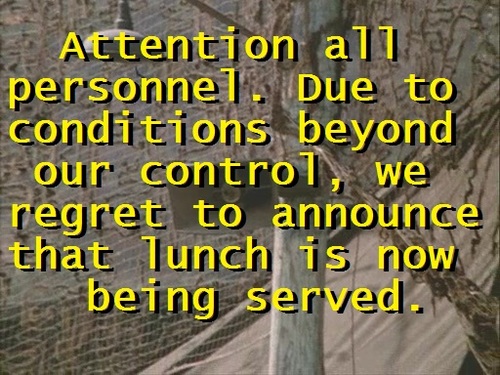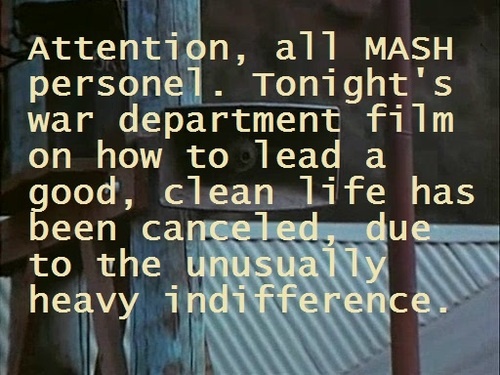–
The springboard concept for my novel, Better Off Undead, was that Adrian Lazerus would become a zombie who, post-accident, returns transformed to middle school. The ultimate misfit, outsider. And as far as the rest of the world knew, the only zombie on the planet. (If you want more zombies, you’re going to have to demand a sequel.)
Yes, the zombie, that’s a preposterous idea. And, I thought, an interesting metaphor. So I went with it. Along the way, I asked myself why Adrian had reanimated. What was going on? Looking around, I realized this was a “world gone wrong” story.
An inspiration for this notion surely came from Alfred Hitchcock’s masterpiece, “The Birds,” which is a classic “world gone wrong” story. I think in retrospect I’ve long been impressed by the film’s central idea. When the natural world goes out of whack, everything goes off-balance. The center cannot hold. That poem by Yeats, another inspiration.
–
It did not require a great imaginative leap. Look around: the world is going wrong in many ways. Climate change is a leading cause of much of it. Droughts and wildfires, extreme weather, superflus, Zika viruses, melting ice caps, and on and on. So I ended up taking a lot of different elements that are in the news today, blowing them up a little bit, and employing those issues as context for Adrian’s story, which is set in the not-so-distant future. Adrian himself is a result of a world gone wrong, but he’s also existing within it. Like the rest of us.
Here’s an excerpt of a recent article by Lauren Weber in The Huffington Post, titled “Mosquito- and Tick-Borne Diseases Have Tripled, But the CDC Won’t Say It’s Climate Change“:
The number of Americans who have gotten sick from mosquito, tick and flea bites more than tripled between 2004 to 2016, according to new figures from the U.S. Centers for Disease Control and Prevention. The study also said that local and state public health departments are unequipped to properly combat the surge of disease from insects.
Since 2004, nine new diseases have been introduced in the United States, including the chikungunya and Zika viruses. Diseases already endemic to the country, such as Lyme disease, shot up, contributing to these high case counts. Experts warn Lyme disease diagnosis numbers can be up to 10 times higher than currently reported.
“The numbers are really staggering,” said Dr. Ashish Jha, the director of the Harvard Global Health Institute. “The increase that we’re seeing over a very short time period is unprecedented.”
I could site dozens of articles that served as seeds for the ideas,  sometimes presented off-handedly, matter-of-factly, in the book. Adrian’s father, for example, is away in Africa working for Corporate, a for-hire soldier fighting in the “Water Wars.” Just read about water security issues if you think that’s far-fetched. Or consider white nose syndrome and the importance of bats. In the novel, Zander and Adrian come across a dead bat while on their way to the local pizza joint. Zander has a keen interest in nature — bees and beekeeping play a pivotal role in this book — so they pause and take note of it. Look at this. A dead bat. White nose syndrome. And they move on.
sometimes presented off-handedly, matter-of-factly, in the book. Adrian’s father, for example, is away in Africa working for Corporate, a for-hire soldier fighting in the “Water Wars.” Just read about water security issues if you think that’s far-fetched. Or consider white nose syndrome and the importance of bats. In the novel, Zander and Adrian come across a dead bat while on their way to the local pizza joint. Zander has a keen interest in nature — bees and beekeeping play a pivotal role in this book — so they pause and take note of it. Look at this. A dead bat. White nose syndrome. And they move on.
Here’s an excerpt from a February article in The New Yorker by J.R. Sullivan, “A Fatal Disease Is Ravaging America’s Bats, and Scientists are Struggling to Stop It“:
—
As of September, 2017, the disease had spread to thirty-one states, some of which have suffered ninety-per-cent declines in their bat populations; the crisis, which began in New York, now extends as far west as Washington. “I think most states would say it’s not a matter of if white nose is going to show up but when,” Kelly Poole, the endangered-species coördinator for the Iowa Department of Natural Resources, told me. The disease disrupts the bats’ hibernation, causing them to wake up in winter, exert energy looking for food, and, in time, starve. It is almost always fatal, leaving caves full of bones in its wake. Scientists have yet to find a cure or treatment. “I get a sense that we may actually be witnessing the extinction of a couple of species, at least regionally,” Gumbert said. “We may not lose a species completely, but it wouldn’t surprise me if we did.”
In a state such as Iowa, where the economy is based largely on agriculture, white nose is particularly worrisome. According to a study published in 2011 in the journal Science, bats consume enough insects to save U.S. farmers an estimated $22.9 billion a year in pest control and crop damage, a conclusion echoed by a follow-up study in 2015. The findings suggest that a nationwide decline in bats could result in higher food prices, owing to an uptick in pesticide use and a reduction in crop yields. “That cost gets passed down to the consumer, and you start seeing it at the grocery stores,” Piper Roby, Copperhead’s research director, told me. She also noted that increased pesticide use means more harmful chemicals in the ecosystem. “It’s just this cascade effect if you remove a top-down predator, and you start to see the effects of it years later,” she said.
In one key scene, a queen bee speaks an important line. (Yes, it surprised me, too; my first talking bee!) She delivers only three words to Gia: “It all connects.”
And she’s absolutely right, especially when it comes to climate change.
–






















